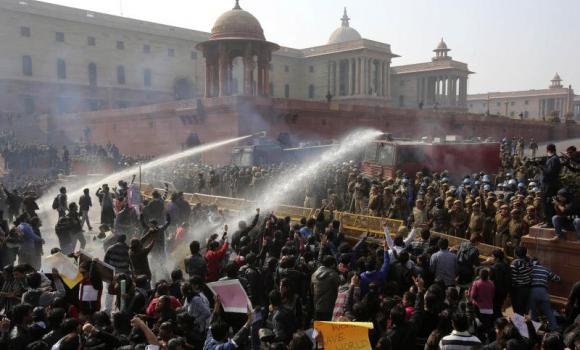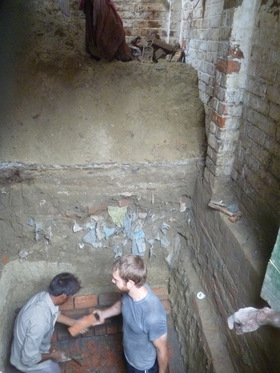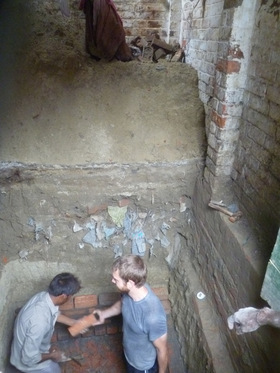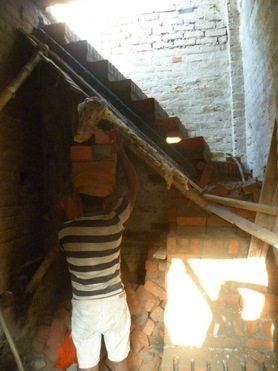As the rain began to drizzle and then pour down on us, I looked around the crowd: some women in saris, others in salwar kameez suits, and a lot of women in full burqa—faces covered, but voices raised. Their courage was expressed in their presence at the rally in the pouring rain, some of them with babies and small children in tow. Their demands were written on the placards and banners they were going to carry through the flooded streets of downtown, all the way to the front gates of the parliament building. The rally was a protest against a slew of recent cases of violent rape across our city and our state in recent months, and the way that government and police alike were complicit in the terror by not only refusing to enforce laws to hold perpetrators responsible, but refusing to investigate cases and even refusing to file police reports when victims or their families turned up at police stations to seek help in the aftermath of these violent crimes.
In the height of the monsoon deluge, the group of protestors—mostly women and girls, but a handful of men and boys, too—stepped off the curb into the water and began their march. Our clothes were soaked, but everyone marched enthusiastically forward, lifting their arms and shouting together. As we neared our destination, a clutch of news photographers and cameramen appeared to snap photos and shoot footage of the event. Not far beyond them, however, the police also appeared in front of the crowd of protestors. I could see one officer alternately shouting something to the women at the front of the column, and then speaking into his walkie-talkie when those women defiantly shouted their slogans and continued moving forward. We soon saw what he must have been radioing about. Ahead of us, a larger group of police was barricading off the entire road. They were pushing the last section of metal fencing into place when the protesters reached them, grabbed the fence, and shoved it backward into the officers. Everyone poured in through the hole, and more of the barricade was knocked aside as we all made our way through. The police scrambled ahead to make their last-ditch attempt at keeping the women from reaching the parliament building. When we arrived, there was already a line of policemen blocking the gates, but that didn’t discourage the protestors from marching right up to them. Someone passed forward a microphone and a speaker which was held aloft as one woman announced why we were here and described the terrible situation of women in our society who can’t count on the protection of either their government or their police force.
A delegation of eight was allowed inside the building to present their demands (including a proposed amendment) to the chief minister; meanwhile, the rest of us waited outside. Police reinforcements had arrived and begun to surround the group. Then the army also arrived, and soon our group was surrounded on all sides by mustachioed men with bamboo sticks and guns. There were roughly a hundred protestors and a hundred police and army personnel, but this didn’t discourage many of the women from turning toward the men in uniform to talk about specific unresolved rape and murder cases over the microphone or to register their anger over police corruption and inaction.
I was impressed by the courage these women displayed, and by their solidarity with one another. The police and the army had been called up to intimidate them, to stop them… and yet here they were, facing off with power and holding their ground. Only time will tell what is to become of the demands the delegation presented to the government that day, but one thing is sure: that kind of courage and willingness to speak out about the violence against women that is routinely swept under the rug, ignored, or denied as something shameful or insignificant is definitely evidence that the tide is changing, however slowly.
Source: New feed





